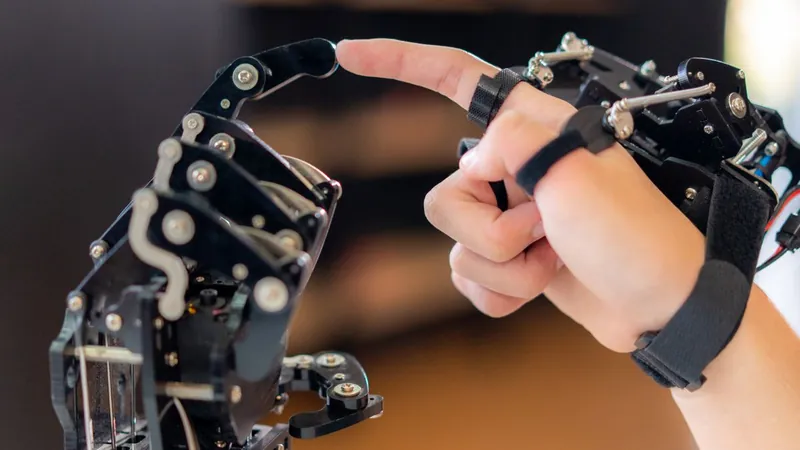
Could Robots Really Read Your Emotions? Scientists Uncover Sweat's Hidden Secrets!
2024-12-21
Author: Wei Ling
Introduction
In a groundbreaking study, researchers have discovered that future robots might soon be capable of reading your emotions simply by touching your skin! Leveraging a method known as skin conductance, which gauges how well skin conducts electricity based on moisture levels, scientists conducted an intriguing experiment with 33 participants who were shown a variety of emotionally charged videos.
The Study
As participants reacted to clips ranging from horror films to heartwarming family reunions, the researchers noted that the skin's electrical properties changed due to sweating. This change correlates closely with feelings of fear, surprise, and family bonding, validating skin conductance as a promising tool for capturing real-time emotional states.
Implications
Published in the journal IEEE Access on October 15, the findings suggest that combining skin conductance with other physiological signals—like heart rate and brain activity—could pave the way for the development of emotionally aware devices and services. The researchers emphasized the need for further exploration of these techniques, as existing emotion-detection technologies often rely on facial recognition and speech analysis, which can be inconsistent and raise privacy issues.
Potential Applications
Imagine a smart device that plays calming music when you’re anxious or a streaming platform that curates films based on your mood! To work effectively, however, these technologies must accurately interpret a user's emotional state. In their study, the scientists devised an experiment that involved attaching sensors to participants’ fingers while they watched a series of carefully selected video clips. They monitored how quickly skin conductance peaked with different emotions and how long it took for the levels to return to normal.
Findings
Interestingly, the results revealed that fear responses lingered the longest—perhaps an evolutionary trait designed to keep humans vigilant against threats. Conversely, emotions tied to family bonding—characterized by a blend of happiness and sadness—exhibited slower responses due to the conflicting nature of these feelings. Humor, on the other hand, triggered rapid reactions, but they dissipated quickly, leaving researchers with more questions than answers about why this happens.
Future Directions
As technology continues to evolve, integrating skin conductance with other measures like electromyography and brain activity could enhance the accuracy of emotion recognition systems. "The demand for innovative techniques to interpret individuals' emotional experiences via physiological signals is rising," the researchers noted.
Conclusion
Stay tuned, as the future of emotionally intelligent machines inches closer to reality. Will robots soon be sensitive to our feelings, enabling more profound interactions? The possibilities are endless!



 Brasil (PT)
Brasil (PT)
 Canada (EN)
Canada (EN)
 Chile (ES)
Chile (ES)
 España (ES)
España (ES)
 France (FR)
France (FR)
 Hong Kong (EN)
Hong Kong (EN)
 Italia (IT)
Italia (IT)
 日本 (JA)
日本 (JA)
 Magyarország (HU)
Magyarország (HU)
 Norge (NO)
Norge (NO)
 Polska (PL)
Polska (PL)
 Schweiz (DE)
Schweiz (DE)
 Singapore (EN)
Singapore (EN)
 Sverige (SV)
Sverige (SV)
 Suomi (FI)
Suomi (FI)
 Türkiye (TR)
Türkiye (TR)